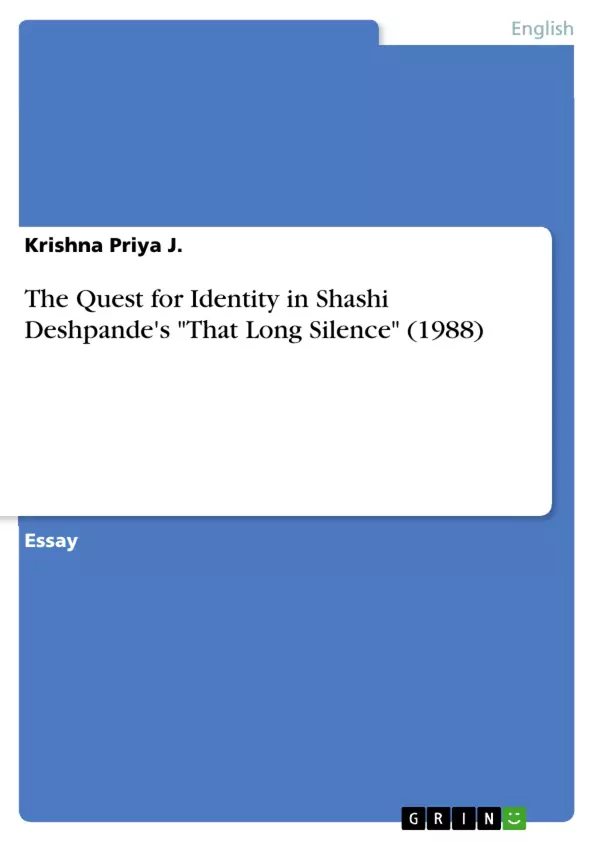This paper examines the feminist perspective of Shashi Deshpande's "That Long Silence" (1988). This novel won the Sahitya Akademi award in the year 1990. In this novel, the soul protagonist is Jaya, whose complete control was taken over by her husband Mohan, after their marriage. Deshpande realistically depicts the inner conflicts of Jaya and her quest for the self or identity. This novel is about gender discrimination and inequality prevalent in society.
God created men and women equally, but the women’s rights were limited to small. Feminism as a movement might have originated in the West, but with the deterioration in the status of women in India and the subsequent efforts made during the freedom struggle to pave the way for equal access to education and equal status, there arose a need for feminist studies. The feminist movement advocates equal rights and equal opportunities for women. Feminism was portrayed by many writers of English literature and one among them is Shashi Deshpandae (1938).
Table of Contents
- ABSTRACT
- INTRODUCTION
- FEMINISM IN THE NOVEL "THAT LONG SILENCE"
Objectives and Key Themes
This paper examines the feminist perspective of Shashi Deshpande's "That Long Silence" (1988), a novel that won the Sahitya Akademi award in 1990. The work explores the inner conflicts of Jaya, the protagonist, who struggles to reclaim her identity after her marriage to Mohan. The paper highlights the novel's exploration of gender discrimination and inequality within Indian society.
- The struggle for female autonomy and identity within a patriarchal societal framework.
- The impact of societal expectations and traditional roles on women's self-expression and agency.
- The complexities of marriage and the dynamics of power within intimate relationships.
- The importance of female voices and the role of writing in reclaiming identity.
- The portrayal of women's experiences and perspectives within a specific cultural context.
Chapter Summaries
The novel delves into Jaya's journey from a confident young woman to a silenced and subdued wife. Her pre-marital optimism, nurtured by her father's encouragement, contrasts with the lack of support she receives from her mother and the oppressive expectations imposed by her husband. The novel explores the subtle ways in which Jaya's identity is eroded through her marriage, with her husband attempting to mold her into a traditional, subservient wife. Deshpande uses vivid imagery to depict the confinement and lack of autonomy Jaya experiences within her marriage.
The novel also explores the perspectives of other female characters, highlighting the complex realities of women's lives in Indian society. Mukta, a widow, represents a different kind of freedom, while Kusum's tragic suicide underscores the pressures and injustices faced by women. Jaya's encounters with these characters challenge her own assumptions and awaken a desire for self-expression and agency. Through her encounters with her neighbor Kamat, Jaya finds a space for authentic dialogue and support, eventually leading to a newfound sense of self.
Keywords
The novel explores themes of feminism, identity, women's rights, societal expectations, gender inequality, marriage, and the power of the female voice. The text draws on the works of Simone de Beauvoir and Virginia Woolf to contextualize Jaya's struggle for self-discovery.
- Quote paper
- Krishna Priya J. (Author), 2020, The Quest for Identity in Shashi Deshpande's "That Long Silence" (1988), Munich, GRIN Verlag, https://www.grin.com/document/942013



